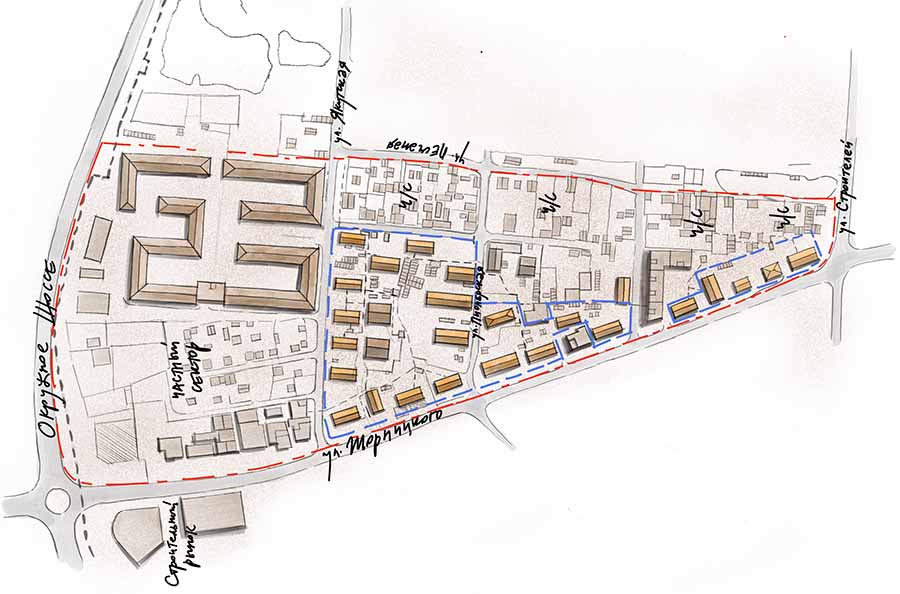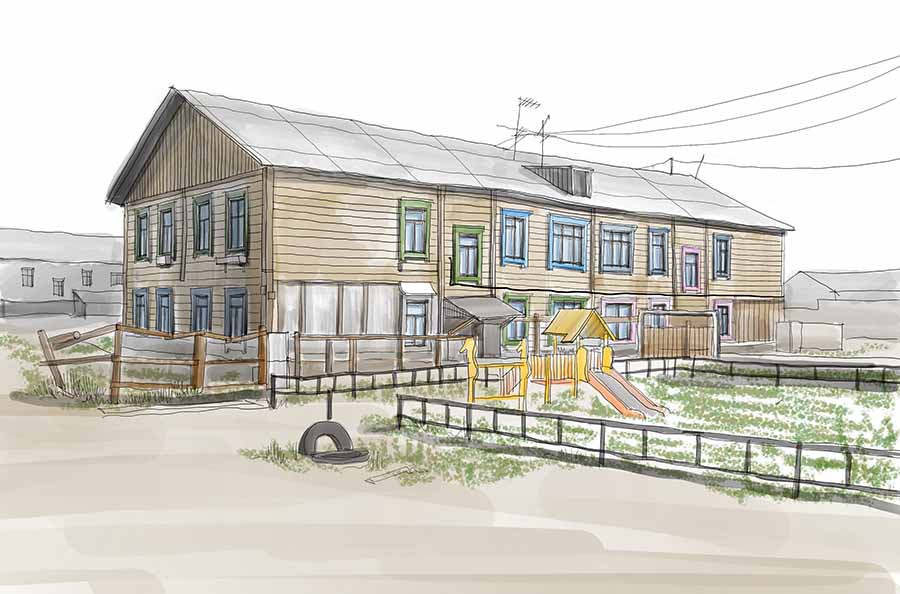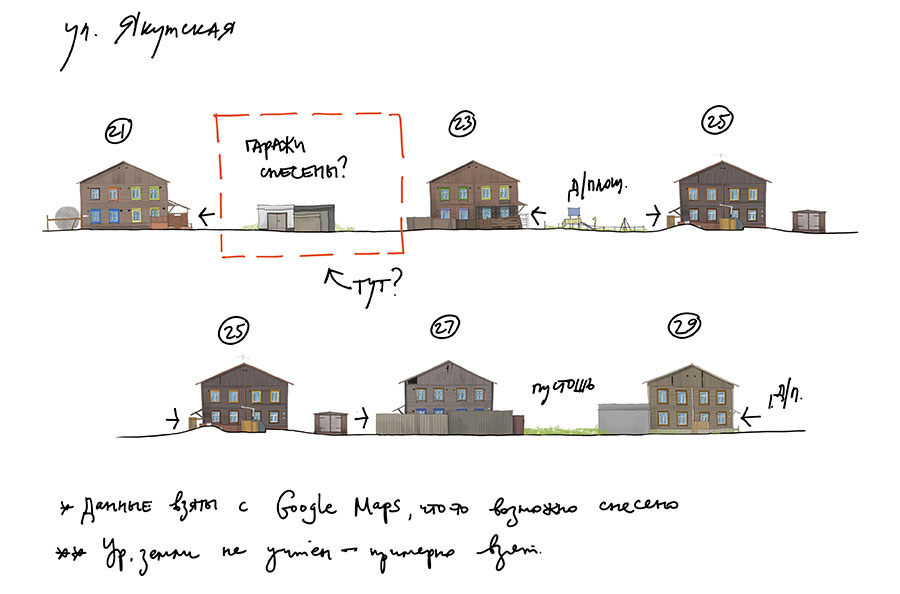Maiia Sivtseva is a PhD candidate that currently conducts research based in her hometown of Yakutsk, Siberia. She holds degrees in Architecture and Urban Planning from the Novosibirsk State Academy of Architecture, Oxford Brookes University and London Metropolitan University. Currently, she is both a practitioner (GSA Studios) and a researcher, writing her PhD thesis through hands-on practice within the Architecture of Rapid Change and Scarce Resources (ARCSR) research group, London Metropolitan University.
Maiia Sivtseva
Evaluating Participatory Placemaking as a Tool for Assessing Contextual Issues of Shared Spaces in Yakutia, North-Eastern Siberia
Research Group:
Architecture of Rapid Change and Scarce Resources (ARCSR)
Supervisors:
Prof. Maurice Mitchell and Dr Bo Tang
Abstract:
This research assesses the possibilities of participatory design and collaborative making as a tool for provoking civic placemaking initiatives in the Republic of Yakutia, located in North-Eastern Siberia. The way in which the cities of Yakutia have developed through time has been affected by the permafrost landscape of the Subarctic; the socio-cultural context of its indigenous people and the Russian and Soviet military and mining incursions. The local matters of concern include the lack of indoor shared spaces, the issue of stray dogs, climatic and landscape-based restrictions (specific requirements due to permafrost and extreme temperature change), the politico-economical realm of Russian building processes (timelines, funding, design approval processes) and the lack of conservation of the identity of the indigenous culture and integration of local residents concerns with the process of city making. This has created a unique cultural and climatic setting where the combination of the bottom-up and top-down approaches to the development of shared urban spaces can be tested.
The particular questions which the research addresses are:
What place-based affordances are there in Yakutia to facilitate participatory design and the collaborative making of civic places?
What approach can provoke tangible change that can fit with both the physical affordances and the local matters of concern?
To what extent can collaborative architectural placemaking contribute to the development of civic places at different scales in the context of:
(a) the climate: continuous permafrost and severely cold winter conditions
(b) the politico-economical context of Russian Siberia
(c) the socio-cultural context of Yakutia
The research aims include: studies of the affordances of the landscape and climate of Yakutia, assessment of participatory design theories, testing of remote and hands-on architectural making processes in the context of North-Eastern Siberia. Participatory design and collaborative making, specifically its learning-by-making aspects, remote design and hands-on making can be the most effective tools in shared space design because the solutions are coming directly from its users and can bring more appropriate design solutions, involving the community in creating the identity of the context. Collaborative participatory design with foreign experts can help to provoke interest of the local community and enrich the learning process.
The methodology is based on interviews, literature reviews, walking and drawing observations and the facilitation of collaborative design and public workshops to test the research findings. In order to evaluate a meeting point of top-down and bottom-up approaches and find unique features of participatory design in the context of Yakutia, appropriate timing and scaling of such initiatives are used. The results of this might impact on the perception and character of future changes, by providing an example and validating the approach.
The main research findings from the PhD will contribute to knowledge of architectural participatory making and critically assess the future public urban development possibilities in Yakutsk and more broadly in the context of the Arctic and Subarctic regions, which can lead to more sustainable shared space design and improve the quality of life of the users.
| sivtsevama@gmail.com | |
| Website | Maiia Sivtseva Design Research |




